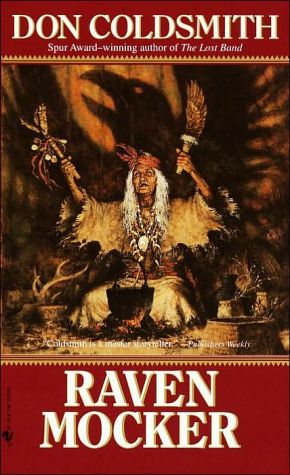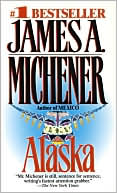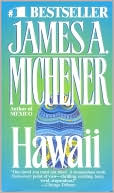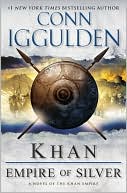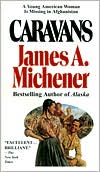Raven Mocker
Demon...or Healer?\ For years Snakewater, the aging medicine woman of Old Town, has been respected—and feared—by her Cherokee village. Now, as a series of mysterious deaths plagues her village, she finds herself accused of being a Raven Mocker, the legendary creature of evil that steals life from its victims in its relentless quest for immortality. Driven from her people, Snakewater journeys west for the first time with a traveling band to the Cherokee settlements far beyond the...
Search in google:
Misunderstood by her peers and unloved by her stepmother, the young Cherokee, Corn Flower, finds acceptance with Snakewater, the medicine woman of Old Town. Soon, Corn Flower moves into Snakewater's isolated house and begins learning the art of healing--what ceremonies to perform, which plants to harvest, how to preserve them. When Snakewater dies, Corn Flower inherits the role and the power of the medicine woman as well as her name, Snakewater. This latest novel in Don Coldsmith's beloved Spanish Bit Saga is told through Snakewater, the oldest Cherokee in her village. She provides potions and curative rituals for those who seek her help. In Old Town, she is respected for her skill and knowledge--until a grieving young woman blames Snakewater for her infant's death. "Raven Mocker!" she accuses, invoking the feared creature of Cherokee legend, who cheats the carrion bird by stealing the life-years of those who die young to ensure his own immortality. The case against Snakewater is strengthened when a warrior dies by his own knife in Snakewater's vacant hut and again when the warrior's brother mysteriously drowns. Fleeing from the suspicion, jealousies, and hatred of Old Town--and from her own fear that she may in fact be the dreaded Raven Mocker--Snakewater joins a band traveling west. On her odyssey, she regains confidence as she discovers her talent for storytelling and learns what it means to be part of a family. Snakewater's path takes her across the Mississippi, on perilous trails with a trader and his wife, and to the winter camp of the Elk-dog People, a nomadic nation of buffalo hunters, where she begins to put her past behind her. This gripping story concludes with a surprising confrontation at the Elk-dog People's annual Sun Dance when the mystery behind the unexplained deaths is finally revealed--or is it? ABOUT THE AUTHOR: Don Coldsmith is an award-winning author of twenty-nine books in the Spanish Bit series, including Medicine Hat and The Lost Band: A Novel, also published by the University of Oklahoma Press.Publishers WeeklyIn the latest installment of his Spanish Bit Saga, yeoman western writer Coldsmith tells the tale of Granny Snakewater, n e Corn Flower, an orphaned Cherokee girl who falls under the tutelage of her adoptive namesake and gradually replaces her as the conjure woman for the Real People. Grown old and reclusive, Snakewater falls victim to rumors that she is the embodiment of the spiritual demon Raven Mocker, which gives her the power to steal years from others' lives and add them to her own. As the village's suspicions become more pointed, she flees west to Arkansas, where she takes up with the Elk Dog people and becomes a central player in their development of the Sun Dance. Although vague about setting and time, Coldsmith provides a kind of Classic Comic Book account of Indian civilization before it was destroyed by white encroachment. His Native Americans speak like Oxford dons, except when they drift into a casual 20th-century idiom, which happens with annoying frequency. Apart from a few "bad apples," most of his characters are kind in word and deed and wiser than any sage. The narrative flows well enough, although it is often slowed by intrusive folk tales and fairy stories. Still, this is a pleasant read, particularly for young readers. There is no particular conflict, save Snakewater's self-doubts about her potentially mystical abilities, and no sense of tension or suspense contributes to the development of character. In sum, this newest edition of the "saga" is a competently rendered but fairly banal fictional biography of an elderly woman based on a minor folk legend. (Mar.) Copyright 2001 Cahners Business Information.
Chapter 1\ The old woman woke and lay there for a few moments, not quite ready to face the day. It had been a chilly night, and her bones told her so, with the dull ache that seemed to settle nowhere . . . or everywhere. . . . She wasn't sure which.\ She'd need to get up in a little while to go and empty her bladder. Maybe she could catch just a little more sleep first. No, better not. . . .\ She gave a great sigh and raised to an elbow. It must be almost day, because she could see the outline of objects outside through the doorway of her little hut. She pulled herself up, her knees creaking just a bit as she rose to her full height. That was taller than most, even though she had shrunk down some in recent years. . . . Never thought a body could shrink that much. . . . Yet she'd managed to stay active. That had been a big effort sometimes, but it had worked. If you keep movin', they can't cover you up, the old granny had told her.\ That had been years ago, when she was a child. The granny woman had been her friend, one of her few. And she realized later that old Snakewater, the granny, had had very few friends either. People had been afraid of the wizened little woman. They came for her spells and potions but left as soon as they could, glancing back fearfully over one shoulder. They wanted and needed Snakewater's medicine but didn't really like her. Feared her; maybe even hated her.\ So Corn Flower, tall and gawky, a little girl with no friends, had been drawn toward the granny woman, short and wrinkled. They must have made quite a pair, the two of them. She smiled to herself, even now, as she thought how they must have appeared to others. She had spent more and more time with the "witch woman." It was exciting to know that this greatly feared person who had deep secrets, and powers given to few, was her friend. It gave a status and pride to young Corn Flower that she never could have achieved otherwise.\ Her mother had died almost before she could remember. Her father, an important man in the town, was usually busy with the other men. His new wife, Frog, had little use for an unwanted stepchild, and no objection at all to Corn Flower's absence, which by now was almost continuous. When, a few years later, Flower's father had been killed in a skirmish with white men, she simply moved her few possessions to the hut of old Granny Snakewater.\ That had been long ago. So long, in fact, that she could no longer remember her own age. The seasons seemed to follow each other in a rapidly accelerating sequence that became almost a blur. She had seen many people born, live their lives, and die. There was probably no one older in the whole nation of the Cherokees, she thought. Certainly none in this town. At least none she could think of. And her mind was clear. For that she was grateful.\ Corn Flower sighed again and shuffled outside, toward the customary area where she could attend to body functions. A little while on her feet . . . slowly, mobility returned. It was always that way, and had been for a long time. It took a little longer now. That was all.\ Granny Snakewater had given young Corn Flower her medicine before she passed on. It was a logical thing, not a decision. The younger woman had learned the use of the herbs and plants, the purpose of each, and the rituals involved in the search and harvest of the most important. Some could not even be gathered until seven had been located and the first six rejected. There had been very little instruction. Mostly merely a comment: No, not like that. . . . Do it this way. . . . Little praise either—usually just a nod and a tight smile when something was right. A frown when it was wrong.\ The last few seasons of her life, old Snakewater would often turn a request over to the younger woman: Here . . . Fix a potion for Little Dog, there . . . for the stomach.\ By the time Granny Snakewater died, her understudy was nearly twenty. Corn Flower had never married. There had been no suitors. She had wished, sometimes, that . . . No, there was nothing to be gained by what if. . . . The young men were afraid of the witch woman with whom young Corn Flower lived.\ Besides, there were plenty of more attractive young women in the town. More eligible females of marriageable age than men, always. Young men were always getting themselves killed in skirmishes with their neighbors.\ She didn't care much, she always tried to tell herself. It was apparent that women who had a man also had more problems than Granny Snakewater did. If a young man came along with romance on his mind, she'd think about it. Meanwhile others had noticed that the young assistant to the granny woman had come to look more and more like Snakewater herself. By the time of the old woman's death there was an eerie feeling that the strange and isolated Corn Flower had taken over not only the house and the medicine of the old granny, but maybe even the person of Snakewater too. The younger woman had been partly aware of this. Sometimes people would call her "Snakewater" and then show great embarrassment over the mistake. That brought a certain vengeful satisfaction, so she let it happen.\ But all that had been decades ago. Now she answered to either name, but was mostly called by that of her mentor, Snakewater. There were few still alive who remembered that she had once been known as Corn Flower. Maybe she had become Granny Snakewater after all.\ She finished her necessary body functions and went on to the stream. The most important ritual of the day was that of Going to Water, men in one area, women in another.\ There were a few people already there when she arrived, wading in as far as waist-deep to fulfill the cleansing ritual and welcome the sacred joy and gratitude of a new day. A few nodded or spoke, and she returned their greetings, but would as soon be alone. She disrobed and followed a narrow gravel bar out toward the center of the stream. As expected, no one else followed her. She made others as uncomfortable as they made her, she had decided. Well, so be it! Still, there was a certain satisfaction in the fact that most of these people, at one time or another, had sought her help. They had been forced to do so. A healing potion, one to attract the attention of a lover, a medicine to correct some ailment—she alone could furnish them, and this brought a perverse pleasure each time it happened. It was better to be feared and respected than to be pitied and loved, she always told herself, though she knew it was a lie.\ She dressed, shivering a little, and started back to her house. It had been her house ever since the death of the granny, a lifetime ago. No one else had wanted it, even. It was outside the town, outside the protective wall of logs set on end, which encircled most of the houses. This hut was not really one that most people would consider worth claiming. Old Snakewater had no family, and her successor had been already living in it, so . . . No one had given it much thought, not even Corn Flower. Her most pleasant memories were here, helping Snakewater pound and mix some of the dried roots or seeds or foliage.\ There was always an odor around the dwelling. It was a not totally unpleasant mixture of drying herbs, tied in bundles and hung from pegs in the rafters. After all the years the smell was the same as she remembered from her childhood. Of all the senses smell incites the most vivid memories of long ago, and the events connected with it. In this case the scent of the hut was the same, and for the same reasons. The plants for medicine were the same, handled in the same way, for the same purpose, but by different hands.\ The old woman strode purposefully up the slope, along the protecting wall, and past the entrance where the wall overlapped. There was a space of a few steps where, entering or leaving, there was only space for one person at a time. This feature had assisted in the defense of the town for many generations. The first few attackers through this cleverly devised chute would face certain death.\ She hurried on to the hut, wondering idly what the day would bring. The day was warming rapidly. At this season, early autumn, nights were cool and days warm and sunny. There was a ripe smell in the air, a spicy mix of warm scents and the perfume of flowers and ripening fruits. Maybe this afternoon she'd take a walk and collect some herbs for medicine. She could use some more sassafras. . . . Maybe there would be pecans and hickory nuts, too, to gather, just for her own use. Usually, she had plenty of food, and of good quality: in exchange for the ointments and potions and charms that she could furnish, people brought her things of value. No one would risk giving an inferior gift to someone with as much power as the witch woman. Corn Flower was not quite sure of the limits of her power. She doubted, sometimes, that it was as effective as some people seemed to think. Yet what was to be gained by minimizing it? Let them think what they would.\ Publicly, of course, she was always modest: No, I have no special powers. . . . I do a little medicine, that's all. . . . Misuse of such a gift would surely be dangerous to the one who sought to invoke it for wrong purposes, and might even be disastrous.\ It was nearly noon before she was really ready to go and begin her gathering. Sun had climbed up the inside of the sky dome and was ready to pause at the house of her daughter for the noon meal. Snakewater cocked an eye upward and lifted her basket for gathering plants. Now, where . . . Oh, yes, there it is. . . . She picked up her favorite digging stick, and put it in the basket.\ "Come on, Lumpy," she said. "I'll need your help today."\ Anyone watching would have assumed that the old woman was talking to herself. This, of course, helped to encourage the idea that maybe she was a little crazy.\ She had first seen the Little People when she was about twelve, she thought. Old Granny had always talked to herself, or to someone not seen by others. The girl had asked her about it.\ "Who are you talking to?"\ "Nobody . . . Just the Little People."\ "Little People?"\ "Of course. You know about them, don't you?"\ "I have heard—"\ "That they look after children who are unsupervised?" The old woman chuckled. "That they are in charge of lost objects?"\ "Well, yes . . ."\ "That's true." The granny laughed. "But more . . . I could not do the things I do without my helper here."\ "What does he look like?" asked the girl.\ "Ah, you try to trick me! You know, child, that if one sees a Little Person and tells of it, they die. If you see one, you must say nothing to anyone."\ "But you—"\ "Ah, I did not say I saw one, did I? I only talked to him. They may be invisible."\ "But if I saw one, what would he look like?"\ "Who knows? No one must ever admit to having seen one. I am sure, though," she said with a twinkle in her eye, "that they would probably look like little Cherokees."\ "But you talk to them. They help you find plants for medicine, Granny!"\ "Of course. We can talk to the Little People. They are in charge of lost objects, no? Maybe we find a knife in the woods. Somebody lost it; we can claim it. But we must tell the Little People: 'Hey, Little People! I'm taking the knife!' "\ Granny had held a hand aloft to show that the finder must show the custodians of lost objects what is to happen.\ "What if you don't tell them?" asked the girl.\ "Ah, you don't even want to know!" said the old witch woman, rolling her eyes alarmingly.\ It had been not long after that, as she now remembered it . . . How often, in an inactive moment, we catch a glimpse of motion from the corner of an eye. We turn and there is nothing there. Sometimes our senses tell us that we almost saw it. . . . A flicker of light and shadow maybe. Or a glimpse of something not intended for human eyes. That was how it had happened. Young Corn Flower had turned, and there in the dusky corner of the room was a figure, no taller than her own waist. It was lumpy and indistinct but seemed to resemble a doll or a very short person. In a moment the image was fading and was gone. Oddly, it did not strike her as unusual until after it had disappeared.\ "Hey, Lumpy, come back!" she cried with amusement. But there was nothing.\ Just then Granny Snakewater entered the doorway.\ "Who were you talking to?" she asked.\ "Nobody! I . . . Just the Little People," Corn Flower stammered.\ "Oh. Of course," the granny said, setting down her basket. Her eyes twinkled. "You didn't see one, did you?"\ "I . . ." she began, and paused. "How could I, Grandmother?" she asked.\ For an instant she had thought she heard a quiet giggle from the corner, but maybe not. . . .\ Now she took the basket and headed out into the woods.\ "Come on, Lumpy!" she said, where to any onlooker there was apparently only empty space.
\ Publishers Weekly - Publisher's Weekly\ In the latest installment of his Spanish Bit Saga, yeoman western writer Coldsmith tells the tale of Granny Snakewater, n e Corn Flower, an orphaned Cherokee girl who falls under the tutelage of her adoptive namesake and gradually replaces her as the conjure woman for the Real People. Grown old and reclusive, Snakewater falls victim to rumors that she is the embodiment of the spiritual demon Raven Mocker, which gives her the power to steal years from others' lives and add them to her own. As the village's suspicions become more pointed, she flees west to Arkansas, where she takes up with the Elk Dog people and becomes a central player in their development of the Sun Dance. Although vague about setting and time, Coldsmith provides a kind of Classic Comic Book account of Indian civilization before it was destroyed by white encroachment. His Native Americans speak like Oxford dons, except when they drift into a casual 20th-century idiom, which happens with annoying frequency. Apart from a few "bad apples," most of his characters are kind in word and deed and wiser than any sage. The narrative flows well enough, although it is often slowed by intrusive folk tales and fairy stories. Still, this is a pleasant read, particularly for young readers. There is no particular conflict, save Snakewater's self-doubts about her potentially mystical abilities, and no sense of tension or suspense contributes to the development of character. In sum, this newest edition of the "saga" is a competently rendered but fairly banal fictional biography of an elderly woman based on a minor folk legend. (Mar.) Copyright 2001 Cahners Business Information.\ \
